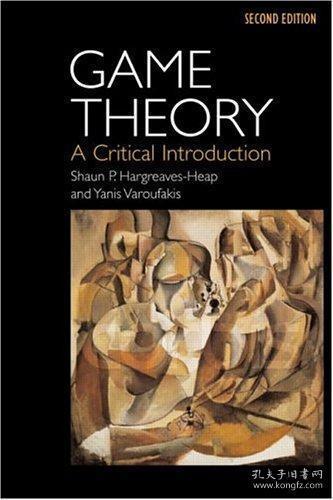Understanding the Basics of Game Theory
 Game theory, a fascinating field of study, revolves around the strategic interactions between rational decision-makers. It provides a framework for analyzing situations where individuals or groups compete or cooperate to achieve their objectives. One of the key concepts in game theory is the use of money, which plays a crucial role in shaping the outcomes of these interactions. Let’s delve into the intricacies of game theory and its relationship with money.
Game theory, a fascinating field of study, revolves around the strategic interactions between rational decision-makers. It provides a framework for analyzing situations where individuals or groups compete or cooperate to achieve their objectives. One of the key concepts in game theory is the use of money, which plays a crucial role in shaping the outcomes of these interactions. Let’s delve into the intricacies of game theory and its relationship with money.
The foundation of game theory lies in the concept of a game, which can be defined as a situation where players make decisions that affect the outcomes of the game. These decisions are based on the players’ preferences and the strategies they adopt. Money, in this context, serves as a means of evaluating the outcomes and rewards associated with different strategies.
One of the most significant contributions of game theory is the concept of Nash equilibrium. Named after John Nash, a Nobel laureate, this equilibrium represents a situation where no player has an incentive to unilaterally change their strategy. In other words, each player is making the best decision given the strategies of the other players. This concept is crucial in understanding the dynamics of strategic interactions and predicting the outcomes of games.
To illustrate the role of money in game theory, let’s consider a simple example. Imagine a game where two players, Alice and Bob, are competing to collect the most money. They can choose between two strategies: working hard or working lazy. If both players work hard, they will each earn $100. If one player works hard and the other works lazy, the hard worker will earn $200, while the lazy worker will earn $0. If both players work lazy, they will each earn $50.
In this game, the Nash equilibrium occurs when both players choose to work hard, as it is the best decision for each of them given the other player’s strategy. The total amount of money earned in this equilibrium is $200, which is the sum of the earnings of both players. This example demonstrates how money can influence the strategic decisions of players and lead to equilibrium outcomes.
Types of Games in Game Theory
 Game theory encompasses various types of games, each with its unique characteristics and applications. Let’s explore some of the most common types of games:
Game theory encompasses various types of games, each with its unique characteristics and applications. Let’s explore some of the most common types of games:
1. Zero-Sum Games: In zero-sum games, the total amount of money or utility gained by one player is equal to the total amount lost by the other players. This means that the sum of the payoffs for all players is always zero. Chess is a classic example of a zero-sum game, where one player’s victory directly leads to the other player’s defeat.
2. Non-Zero-Sum Games: In non-zero-sum games, the total amount of money or utility gained by one player does not necessarily result in a loss for the other players. These games can have positive or negative externalities, and the outcomes depend on the strategies chosen by the players. Poker is an example of a non-zero-sum game, where players can win or lose money based on their skills and strategies.
3. Cooperative Games: In cooperative games, players collaborate and form alliances to achieve a common goal. These games often involve negotiations and agreements among players. The gains in cooperative games can be distributed among the players in various ways. The United Nations is an example of a cooperative game, where member countries work together to address global issues.
4. Non-Cooperative Games: In non-cooperative games, players compete independently and do not form alliances. These games are characterized by strategic interactions and the pursuit of individual interests. The prisoner’s dilemma is a classic example of a non-cooperative game, where players must make decisions based on their own self-interest.
Applications of Game Theory in Real Life
 Game theory has found numerous applications in various fields, including economics, politics, psychology, and biology. Here are some notable examples:
Game theory has found numerous applications in various fields, including economics, politics, psychology, and biology. Here are some notable examples:
1. Economics: Game theory is widely used in economics to analyze market behaviors, pricing strategies, and competition among firms. It helps economists understand how firms make decisions and how these decisions affect market outcomes.
2. Politics: Game theory is employed in political science to analyze the behavior of political actors, such as politicians, voters, and interest groups. It helps in understanding the dynamics of elections, policy-making, and international relations.
3. Psychology: Game theory has been applied in psychology to study the decision-making processes of individuals and groups. It helps psychologists understand how people make choices and how these choices are influenced by social and economic factors.
4. Biology: Game theory is used in biology to analyze the behavior of animals and plants. It helps biologists understand how species compete for resources, form alliances, and evolve
